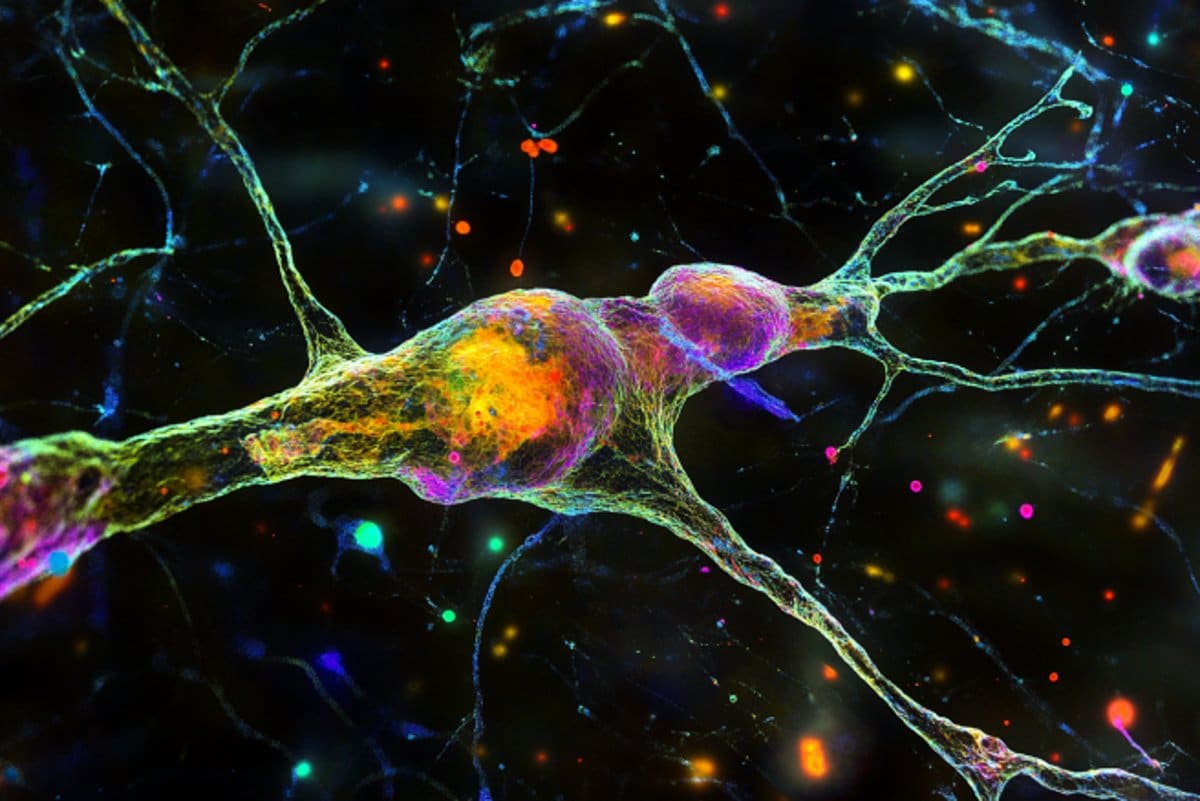Summary: Researchers have uncovered a surprising mechanism by which a single genetic mutation in the BCL11B gene causes both immune dysfunction and brain development issues. Instead of merely disabling the protein’s normal function, the mutated BCL11B protein interferes with other healthy proteins, such as BCL11A, causing broader damage.
In mice, this led to impaired T cell production and abnormal development in the cerebral cortex. This mechanism, known as a “dominant-negative” effect, may underlie other conditions, including some cancers, opening new avenues for drug development.
Key Facts:
- Gene Involved: BCL11B mutations impair immune cell production and brain development.
- Dominant-Negative Mechanism: Mutated BCL11B disrupts healthy proteins like BCL11A.
- Therapeutic Potential: Drugs could target these harmful protein interactions in future treatments.
Source: RIKEN
RIKEN researchers have discovered how a single mutation in one gene can simultaneously result in two symptoms—a severely compromised immune system and problems in brain development. Similar mechanisms may be at work in cancer and other genetic disorders.
Many diseases are caused by genetic mutations that give rise to defective proteins, which can’t do their jobs properly.

An alternative disease mechanism, in which mutated proteins hinder other proteins from doing what they are supposed to do, has been found by a team led by Ichiro Taniuchi of the RIKEN Center for Integrative Medical Sciences.
Taniuchi and his team are interested in genetic factors and pathways that underlie the development of the immune system.
One such gene, BCL11B, encodes a protein that plays a critical role in the production of T cells, which hunt down and eliminate diseased and cancerous cells. Defects in this gene can severely disrupt immune function.
Children born with certain BCL11B mutations also exhibit deficits in brain development.
Taniuchi’s team characterized the effects of one such mutation, known as BCL11BN441K. They discovered that mice with an equivalent mutation in their Bcl11b gene were born with clear, early-onset impairments in T cell production.
Notably, these mice tended to produce excessive levels of another class of immune cells resembling natural killer cells. Mice with the BCL11BN441K-equivalent mutation also showed various defects in brain development, especially in the cerebral cortex.
Intriguingly, the scope and nature of these defects differed considerably from what occurs in mice entirely lacking functional Bcl11b.
Some phenotypes observed in these Bcl11bN440K mice also appeared to have abnormalities normally associated with the loss of Bcl11a, a gene from the same family as Bcl11b that conducts its own set of complementary but distinctive functions.
For example, Bcl11a deficiency contributes to both the abnormal generation of natural killer-like cells in the thymus and the underdevelopment of the cortex, whereas outright loss of Bcl11b does not.
Based on these and other observations, the researchers identified a distinctive disease mechanism in which mutant BCL11B binds to BCL11A and manages to interfere with the normal function of that unmutated protein.
This is the second time that Taniuchi’s team has identified this mechanism—and he doubts it will be the last.
“The mechanism could be behind other human diseases, including cancer,” he says.
Taniuchi anticipates that such conditions could be remedied with drugs designed to prevent the formation of such disease-associated complexes.
About this genetics and neuroscience research news
Author: Ichiro Taniuchi
Source: RIKEN
Contact: Ichiro Taniuchi – RIKEN
Image: The image is credited to Neuroscience News
Original Research: Closed access.
“A mutant BCL11B-N440K protein interferes with BCL11A function during T lymphocyte and neuronal development” by Ichiro Taniuchi et al. Nature Immunology
Abstract
A mutant BCL11B-N440K protein interferes with BCL11A function during T lymphocyte and neuronal development
Genetic studies in mice have shown that the zinc finger transcription factor BCL11B has an essential role in regulating early T cell development and neurogenesis.
A de novo heterozygous missense BCL11B variant, BCL11BN441K, was isolated from a patient with T cell deficiency and neurological disorders.
Here, we show that mice harboring the corresponding Bcl11bN440K mutation show the emergence of natural killer (NK)/group 1 innate lymphoid cell (ILC1)-like NKp46+ cells in the thymus and reduction in TBR1+ neurons in the neocortex, which are observed with loss of Bcl11a but not Bcl11b.
Thus, the mutant BCL11B-N440K protein interferes with BCL11A function upon heterodimerization. Mechanistically, the Bcl11bN440K mutation dampens the interaction of BCL11B with T cell factor 1 (TCF1) in thymocytes, resulting in weakened antagonism against TCF1 activity that supports the differentiation of NK/ILC1-like cells.
Collectively, our results shed new light on the function of BCL11A in suppressing non-T lymphoid developmental potential and uncover the pathogenic mechanism by which BCL11B-N440K interferes with partner BCL11 family proteins.






